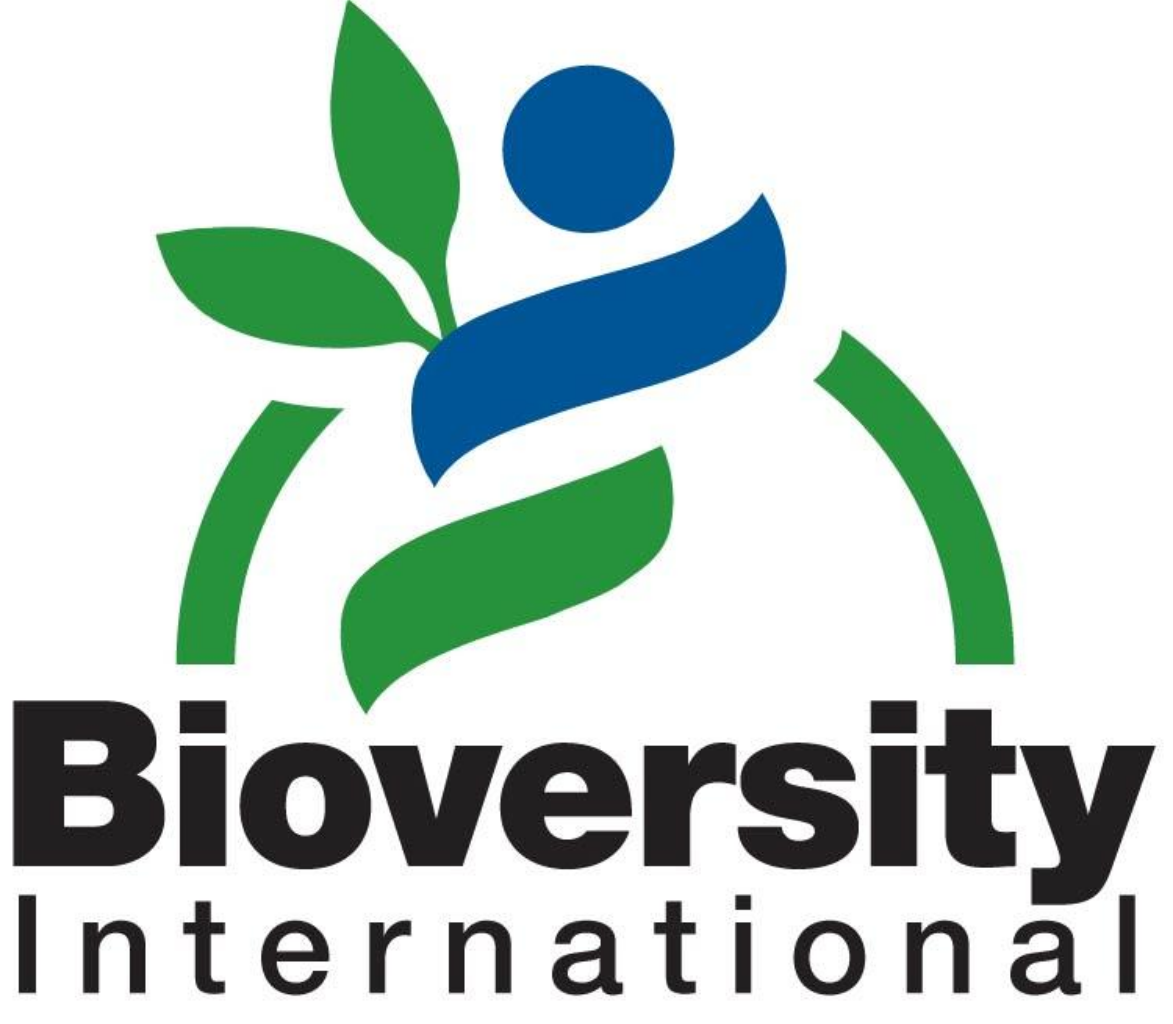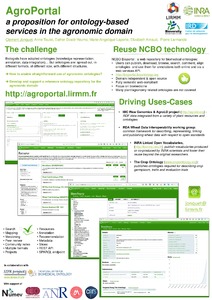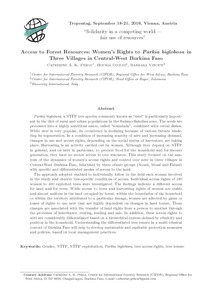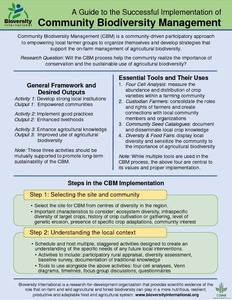Location
Bioversity International is a global research-for-development organization. We have a vision – that agricultural biodiversity nourishes people and sustains the planet.
We deliver scientific evidence, management practices and policy options to use and safeguard agricultural and tree biodiversity to attain sustainable global food and nutrition security.
We work with partners in low-income countries in different regions where agricultural and tree biodiversity can contribute to improved nutrition, resilience, productivity and climate change adaptation.
Members:
Resources
Displaying 71 - 75 of 184AgroPortal: a proposition for ontology-based services in the agronomic domain
Our project is to develop and support a reference ontology repository for the agronomic domain. By reusing the NCBO BioPortal technology, we have already designed and implemented a prototype ontology repository for plants and a few crops. We plan to turn that prototype into a real service to the community. The AgroPortal project aims at reusing the scientific outcomes and experience of the biomedical domain in the context of plant, agronomic and environment sciences.
Access to forest resources: women's rights to Parkia biglobosa in three villages in Central-West Burkina Faso
Parkia biglobosa, a NTFP tree species commonly known as "néré" is particularly important in the diet of rural and urban populations in the Sudano-Sahelian zone. The seeds are processed into a highly nutritious sauce, called "soumbala", combined with cereal dishes. While néré is very popular, its occurrence is declining because of various threats hindering its regeneration. In a condition of increasing scarcity of néré and increasing demand, changes in use and access rights, depending on the social status of harvesters, are taking place. Harvesting is an activity carried out by women.
Access right to food tree species: the case of women access to nere (Parkia biglobosa) in Central-West Burkina Faso
This paper first presents a clustering of women based on the characterization of their distinct access rights to néré. Secondly, the types of access rights are characterized also in spatial terms, based on the type of land use where the women harvesting is exercised.






